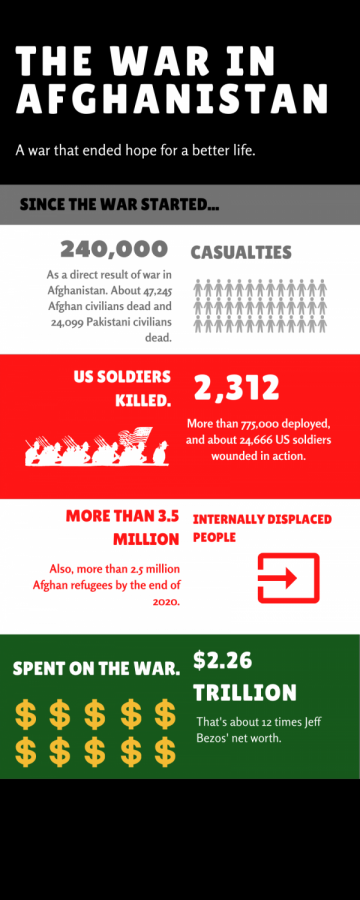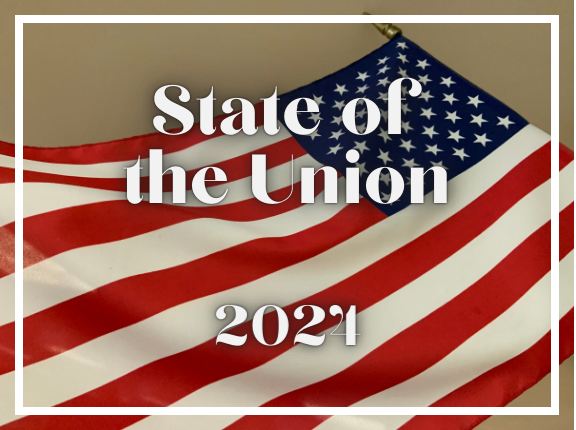Rise of the Taliban: Afghanistan’s Worst Crisis
September 2, 2021
After 25 years, the Taliban have regained control over Afghanistan. This rapid takeover is a result of President Joe Biden’s choice to withdraw American troops from Afghanistan. Since the start of the war, the Taliban spoke about the possibility of an alliance with the West.
“It’s hard for me, as an internal optimist, to believe that, since I can’t imagine them flipping, especially on their oppression of women,” said AV history teacher Jill Battilega.
The Taliban first rose in the late 20th century, and quickly wrenched away power from the Afghan government. This international conflict was succeeded by a shaky five-year regime by the Taliban. However, much of what helped them rise to power isn’t well known.
“[They were] schooled in deep radical Islamic teachings…If we look even prior to that, the Soviet invasion of Afghanistan that happened in 1979…the mujahedin [Taliban] rebels tried to rid their nation of the Soviet invaders [and they succeeded]… In the late 90’s, you would’ve had their taking of Afghanistan….and it would’ve been in 2001, in the aftermath of the United States being attacked by Al-Qaeda, that the five-year rule was put to an end,” said Battilega.
Now the Taliban have taken over Afghanistan yet again. This power gives them a chance to bring back their sharia law that they tried to implement back when they gained control of the nation 20 years ago. Many say that this law could put women’s rights at risk.
“I don’t think they’re gonna try to keep women’s rights, because of the way they follow Islam. They’re taking things out of context, and using them as reasons to kill people, discriminate against women, not let them have [an] education. Once this all blows over, they’re gonna start giving fake reasons, taking the Quran out of context, which gives them validity to take away women’s rights and beat them to the ground,” said Afghan-American AV student Jaylon Shanghasi (‘24).
Biden’s controversial decision has met its own share of critics who condemn him for not acknowledging the casualties caused in the battlefield. However, others say that the withdrawal was long overdue, and that the war was going nowhere.
“I saw images of families clinging to planes, tens of thousands of people trying to get out because they knew what it was going to mean in terms of oppression… However, I do think the United States, for some time, had seen that our efforts were not going to yield what we wanted,” said Battilega.
Those who call Afghanistan their home, or have family there, are truly terrified. It’s a skepticism deeply embedded due to decades of oppression under tyrannical rulers.
“They are just doing this [press conference] as a show to let everything blow by, so the world could think ‘Oh, they are doing it for a reason, they are trying to end corruption,’ but they will start killing and destroying once everyone forgets,” said Jaylon.
Afghanistan is in tatters, a twenty-year old war ruining the country from inside out. As chaos rules in lands controlled by the Taliban, only one fact can be drawn from the confusion; the future seems uncertain for Afghanistan.
Beneath The Surface: Kite Runner and its Relevance to the Current Afghanistan Situation
Music Credits: Me On The Inside by Ketsa from the Free Music Archive (CC by NC-SA)















